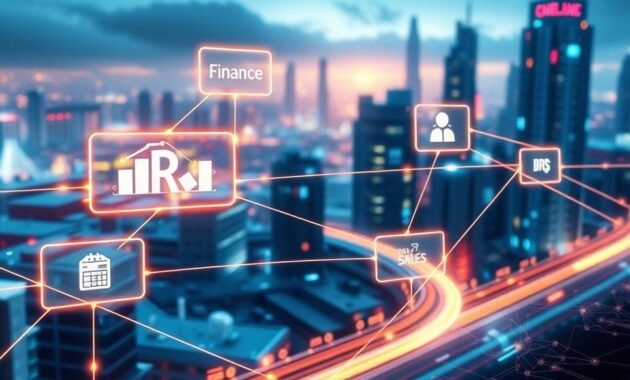Enterprise resource planning (ERP) software is a comprehensive, integrated system that automates and streamlines core business processes, enabling organizations to manage and optimize their operations more effectively. By integrating various functional areas such as finance, accounting, human resources, inventory management, and customer relationship management, ERP systems provide a single, centralized platform for data management and decision-making. This article will delve into the key features, benefits, and implementation considerations of enterprise resource planning software, helping businesses of all sizes enhance their operational efficiency and drive growth.
Key Takeaways
- Enterprise resource planning (ERP) software is a comprehensive, integrated system that streamlines core business processes.
- ERP systems integrate various functional areas, including finance, accounting, human resources, inventory management, and customer relationship management.
- ERP software provides a centralized platform for data management and decision-making, enabling organizations to optimize their operations.
- Implementing ERP software can help businesses enhance their operational efficiency and drive growth.
- This article will explore the key features, benefits, and implementation considerations of enterprise resource planning software.
What is Enterprise Resource Planning Software?
Enterprise resource planning (ERP) software is a powerful, integrated system that combines various business functions and processes into a single, comprehensive platform. ERP systems are designed to streamline and automate core business operations, including financial management, inventory control, supply chain management, human resources, and customer relationship management.
Comprehensive Business Management Solutions
By integrating these critical components, enterprise resource planning software provides organizations with a holistic view of their operations, enabling them to make informed, data-driven decisions and optimize their overall performance. This integrated approach to business management helps companies improve efficiency, reduce costs, and enhance decision-making capabilities.
Integrating Core Business Processes
ERP systems are often considered the backbone of modern business operations, seamlessly integrating various core business processes into a single, cohesive system. This integration allows for real-time data sharing, improved visibility, and streamlined workflow across the organization, ultimately leading to better business process automation and more effective integrated management solutions.
| Key Benefits of Enterprise Resource Planning Software | Description |
|---|---|
| Streamlined Operations | ERP software integrates and automates core business functions, improving efficiency and reducing manual processes. |
| Improved Decision-Making | Real-time data and analytics provided by ERP systems enable informed, data-driven decision-making. |
| Enhanced Visibility | ERP systems offer a comprehensive, centralized view of an organization’s operations, improving visibility and control. |
| Cost Savings | By automating processes and improving efficiency, ERP software can help organizations reduce costs and improve profitability. |

Key Features of Enterprise Resource Planning Software
Enterprise resource planning (ERP) software offers a comprehensive suite of tools designed to streamline and optimize various business operations. Two key features of ERP systems are inventory and supply chain management, as well as robust financial management and accounting capabilities.
Inventory and Supply Chain Management
ERP solutions typically include advanced inventory control and supply chain management functions. These features enable organizations to efficiently track and manage their inventory levels, monitor the movement of goods, and optimize their logistics and distribution processes. By integrating these capabilities, businesses can improve inventory visibility, reduce stockouts, and enhance overall supply chain efficiency.
Financial Management and Accounting
Another critical aspect of ERP software is its financial management and accounting functionalities. ERP systems provide a centralized platform for managing financial records, accounts payable and receivable, and cash flow. These integrated financial tools allow organizations to automate and standardize their accounting processes, generate accurate financial reports, and make more informed, data-driven decisions that drive overall business growth and profitability.

